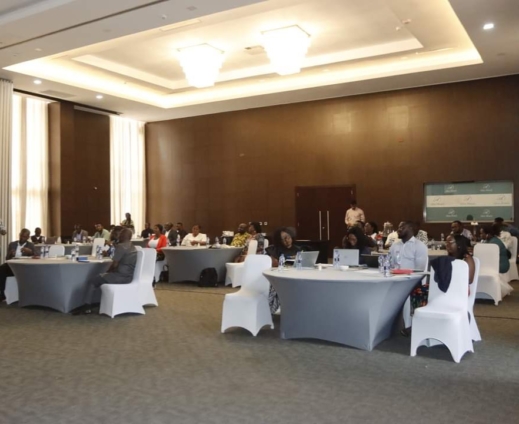The Convener for the Affirmative Action Bill (AAB) Coalition, Sheila Minka-Premo, says the various calls from individuals and organisations are enough justification to fast-track the passage of the bill into law.
Madam Minka-Premo said the AAB, when passed into law, would address social, economic, and educational imbalances, eliminate discrimination, and champion the need for equal opportunities for both men and women.
She made this known during a two-day workshop for journalists organised by the Centre for Democratic Development (CDD) in collaboration with CODEO and the Affirmative Action Bill Coalition with backing from the European Union (EU).
She emphasised that no country could achieve its full potential without the equal economic participation of both women and men, explaining that economic development would be on the decline if the highest portion of the population, being women, were discriminated against, stressing that there was a need for inclusion for the country to thrive.
She said the 40 women members of parliament out of 275 parliamentary seats in the country portrayed an imbalance in the system.
She said such a system was depriving women of their perspective on issues, and therefore called for breaking all barriers to enhance women’s participation in decision-making.
Madam Minka-Premo attributed the low representation of women to the patriarchal system in the country, where the course of men was championed and that of women was demeaned in almost all aspects of social, political, and economic life.
Outlining some critical areas the bill addressed, she mentioned that the marginalisation of women in public and economic life in Ghana was a result of gendered division of labour at home and the lack of legislation to ensure a change for gender equality to be duly dealt with.
The AAB Coalition convener, who is also a lawyer, said that some policies, such as the Girls Education Units of GES, the cabinet’s directive on affirmative action, scholarship schemes set up for females, and affirmative action policies in public universities favouring females for certain courses, have been inactive; therefore, the passage of the bill would address their ineffectiveness.
She added that research had proven that it made economic sense to ensure gender equality, as the economy had better opportunities to grow and become more resilient to crises if women and men have equal rights.
The workshop participants agreed on the need for the affirmative action bill to be passed into law.
Latest Stories
-
Dreams FC denies allegations of attempting to sign Najeeb Yakubu
3 mins -
Election 2024: ‘Right to free and fair elections non-negotiable’ – Akufo-Addo
8 mins -
Kurt Okraku took out my passport from the U23 squad that travelled to Japan – Najeeb Yakubu alleges
19 mins -
Where hope fails: Ghana’s decaying home for the destitute
29 mins -
NDC Mining Committee for 2024 campaign refutes allegations of recruiting thugs for elections
39 mins -
Traction Control: A lifesaver with an off switch? Here’s why it exists
42 mins -
I don’t need anyman to woo me with money – Miss Malaika 2024 winner refutes pimping claims
49 mins -
”Kurt Okraku sabotaged my national team career because I refused to sign with Dreams FC” – Najeeb Yakubu
50 mins -
Businesses urged to leverage Generative AI for enhanced customer engagement
54 mins -
MultiChoice Ghana partners with Ghana Hotels Association to elevate guest entertainment
1 hour -
Bawumia’s music streaming app or Mahama’s pay-per-view TV channel?
1 hour -
Karpowership Ghana empowers 40 Takoradi Technical University students with scholarship
1 hour -
We expect significant reduction in prices of petroleum products in coming weeks – CEO AOMC
1 hour -
Betway Africa offers once-in-a-lifetime ‘Play-on-the-Pitch’ experience at Emirates Stadium
2 hours -
I coined the term ‘hype man’ in Ghana – Merqury Quaye
2 hours

